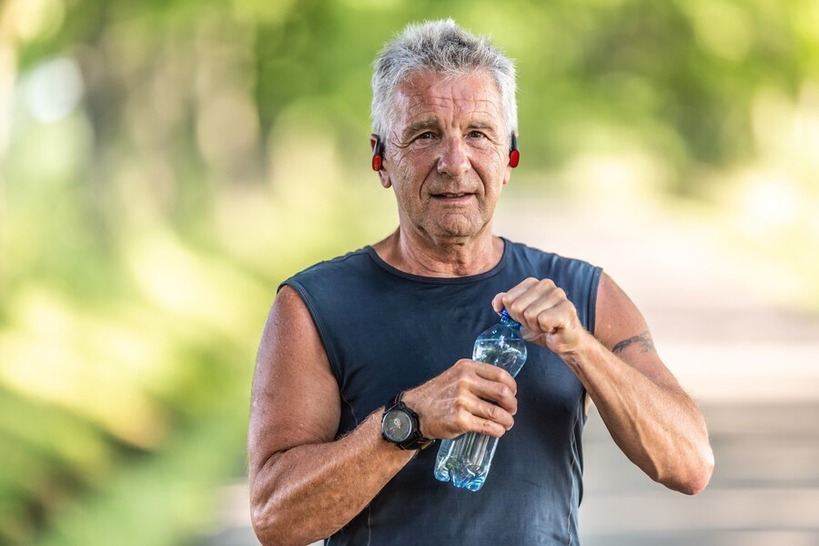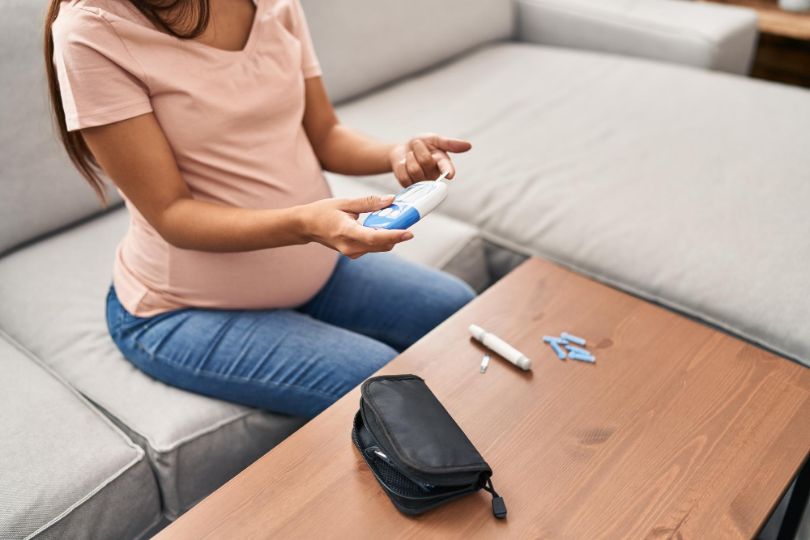What is High Blood Sugar?
Hyperglycemia is what is otherwise known as high blood sugar. Hyperglycemia symptoms can be fully asymptomatic—blood glucose levels can rise well above normal for significant periods without producing any permanent effects or symptoms.
What Causes High Blood Sugar According to Study?
Dr. Lise Bankir is in search of a possible cause-and-effect relationship between water intake, and blood sugar levels. Bankir and her team of researchers at the French National Institute, INSERM, have not yet found a direct biological cause-and-effect relationship; they have, however, found a correlation.
According to the researchers, a hormone called vasopressin—an antidiuretic that helps regulate water retention in the body—may be the missing link. When we are dehydrated, vasopressin levels go up, causing the kidneys to conserve water, but research shows that higher vasopressin levels may also cause high blood sugar. Vasopressin receptors in the liver are responsible for producing glucose (sugar) in the body; one study found that injecting healthy people with vasopressin caused temporary hyperglycemia.
Dr. Lise Bankir Research on High Blood Sugar
Bankir’s findings are based on 3,615 French adults who were between the ages of 30 and 65 and had normal blood sugar levels at the onset. About 19 percent said they drank less than half a liter (17 ounces) of water each day, while the rest drank up to a liter or more. Over the next nine years, nearly 565 participants developed abnormally high blood sugar, and 202 developed type-2 diabetes. The individuals who drank 17 ounces of water a day or more showed a 28 percent less likely chance of developing high blood sugar than those who drank less than that.
There is the possibility of people simply reaching for sugary or alcoholic drinks over water when thirsty, which could lead to weight gain and impaired blood sugar control. In response to this point, Bankir stressed that the study, while unable to take general eating habits into account, did account for sugary and alcoholic drinks, as well as body weight, and exercise levels.
“Healthier behaviors correlating with higher water drinking could account for the observed association.” There was no strong statistical link between water intake and the risk of developing diabetes, however.
Bankir is not discouraged; she cites further, larger studies as being needed. This study was “too small to get a significant result,” but a larger study may be able to detect a statistically significant link.
What is the Normal Blood Sugar Level Range?
For humans, the mean normal blood sugar level in humans is about 80 to 110 mg/dl (milligrams/deciliter). The hormone insulin is normally responsible for keeping blood glucose levels in balance. Patients with type-2 diabetes are often insulin resistant, and because of such resistance, may suffer from a relative insulin deficiency. Synthetic forms of insulin are administered into the body with an insulin injection pen.
Signs of High Blood Sugar
High blood sugar is a serious condition that can lead to diabetes and other diseases. The following are the symptoms of high blood sugar.
- Increased thirst
- Increased urination
- Fatigue or weakness
- Blurred vision or headaches
How to Lower High Blood Sugar?
It is important to stay within a healthy blood sugar range, as diabetes can develop at any point in life. Outside of the aforementioned proper water intake, here are some other methods on how to control blood sugar, or if needed, to lower blood sugar quickly.
- Self-Test – If you test your blood sugar with a finger stick method, and find that it’s over say 200 or 250 mg/dl, then you know that you are high, whether or not you have actually developed thirst and frequent urination.
- Exercise – One of the easiest and most effective ways to keep blood sugar control (as well as the body in general) in check. And it’s free.
- Apple Cider Vinegar – Studies have shown the benefits of apple vinegar pills as contributing to lower blood sugar levels.
- Vitamins for Diabetics – Vitamins supply the body with the materials they need to operate correctly. One of the more potent vitamins for fighting high blood sugar is chromium.
- Cinnamon – Health benefits of cinnamon include reducing blood sugar, (although not as effective in menopausal women.) Sprinkle a couple of teaspoons on your apple sauce, or yogurt, or take it in capsule form for superior blood sugar regulation.
The Future of High Blood Sugar
Hopefully, Bankir is on the right track, and one day researchers will discover the link(s) between water intake and blood sugar and; furthermore, how that relationship contributes to diabetes.







